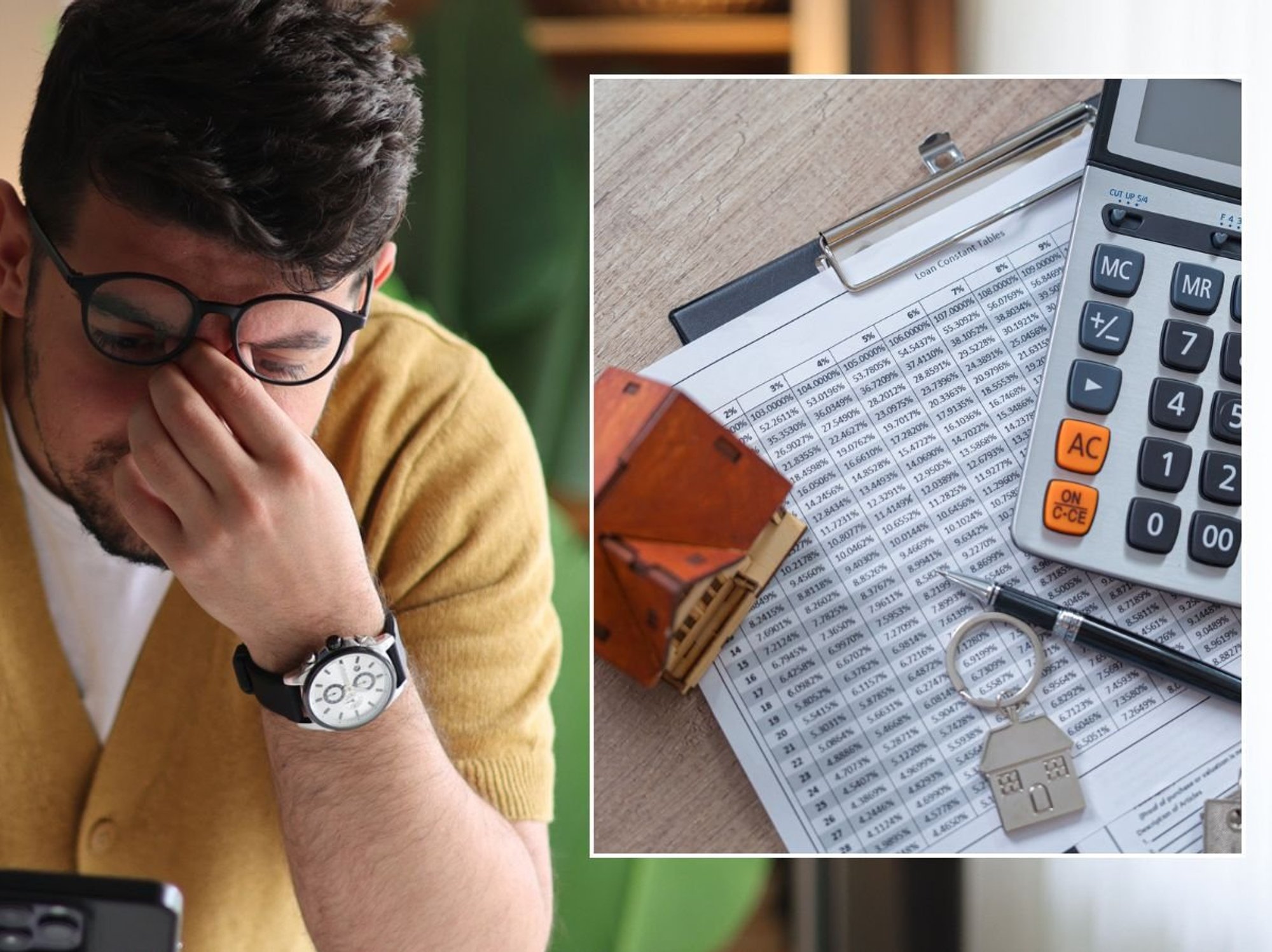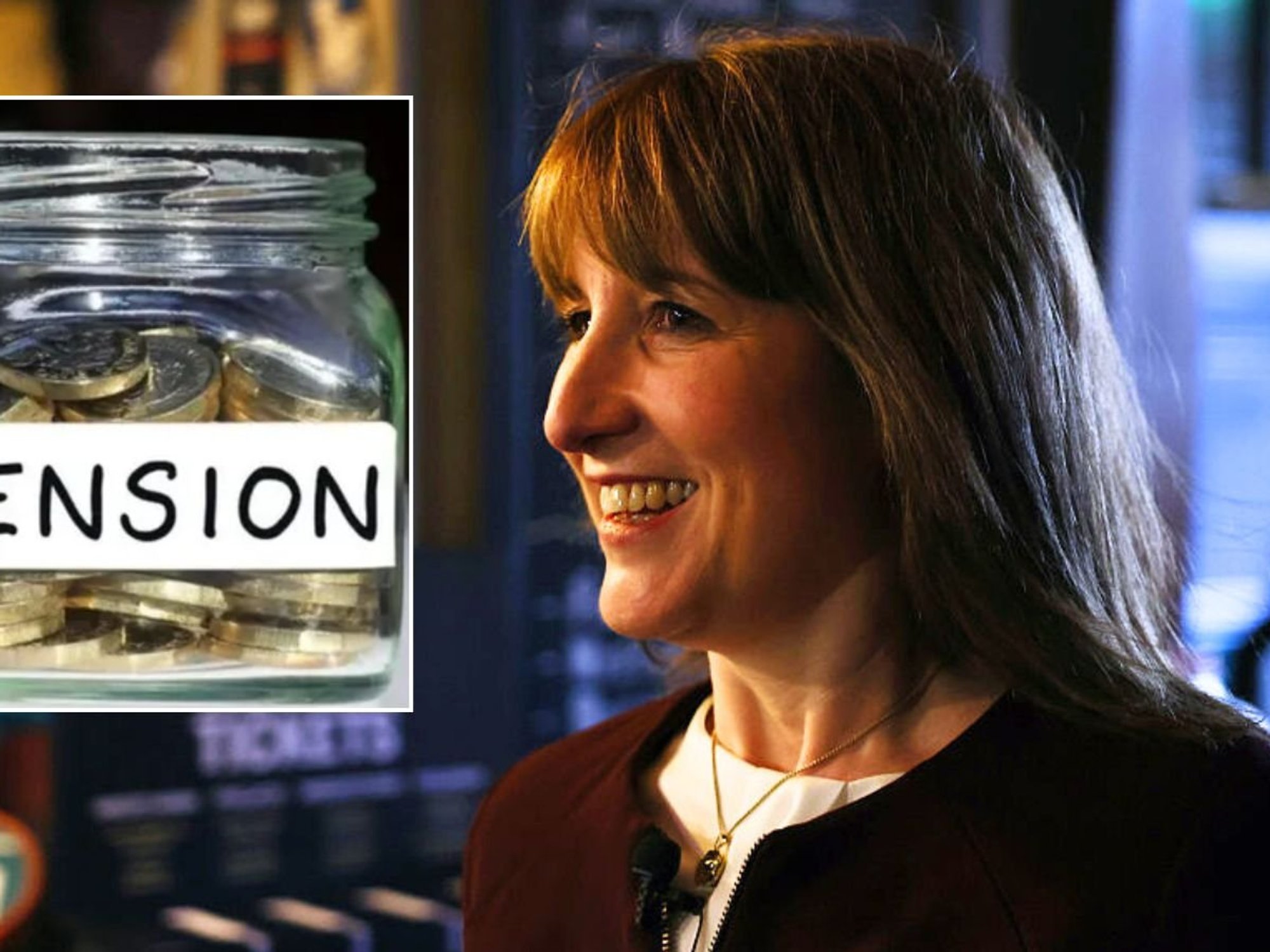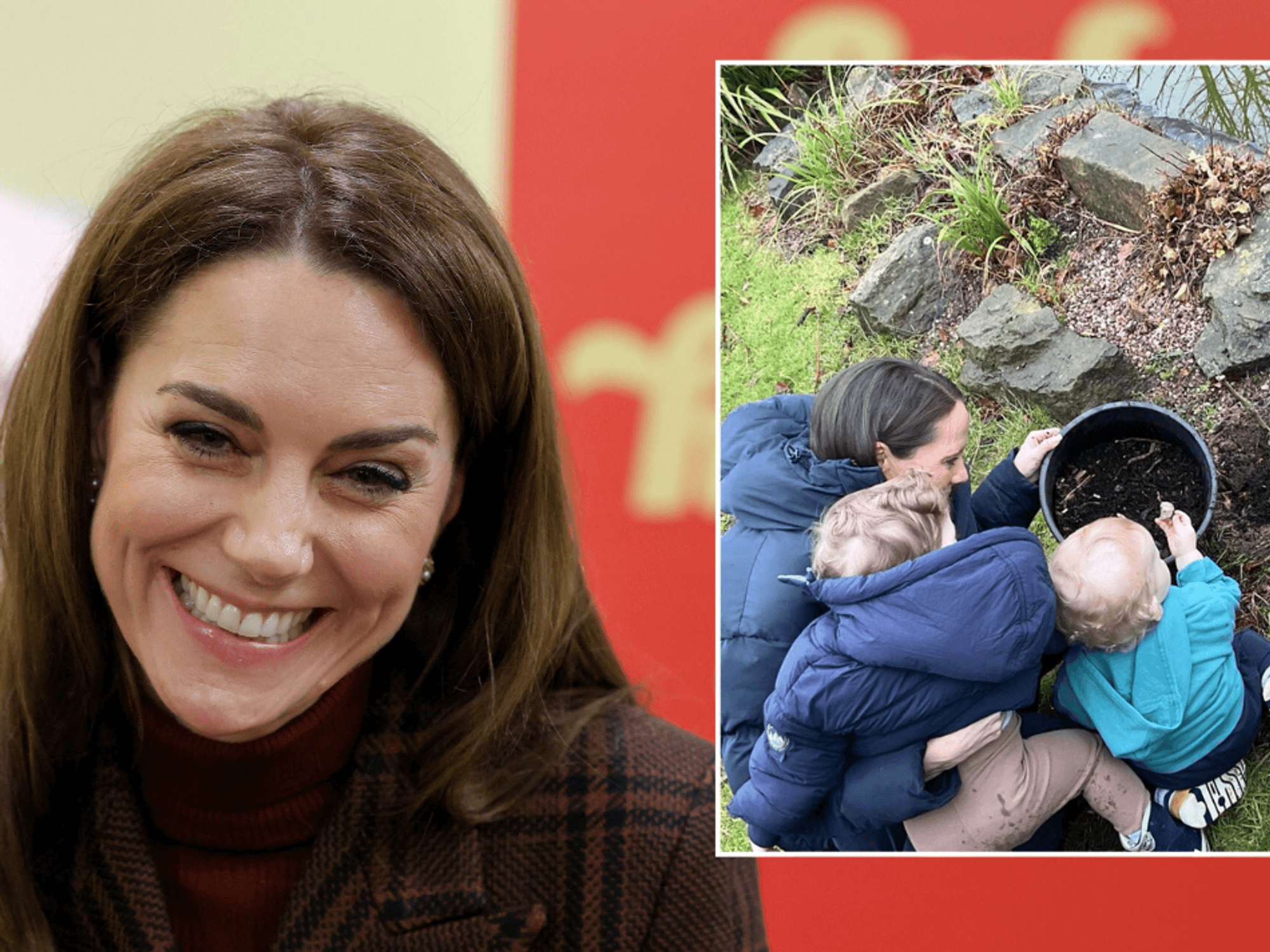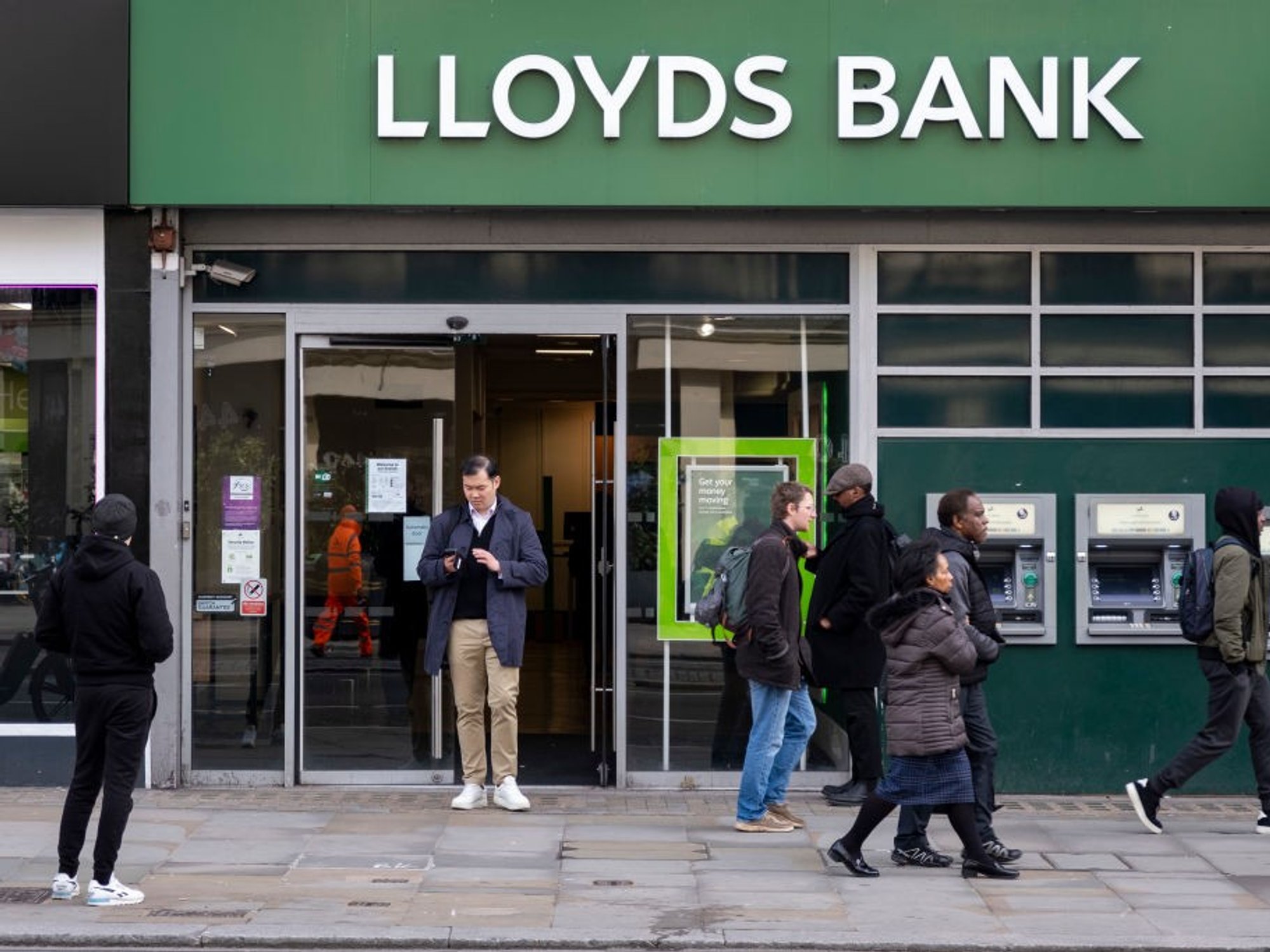Rachel Reeves to scrap two-child benefit cap in major Budget move

Nigel Farage takes the fight to Labour as Reform UK leader set to commit to scrapping two-child benefit cap and fully reinstate winter fuel payment |
GBNEWS

The move could lift hundreds of thousands of children out of poverty, but the Treasury weighs cost concerns
Don't Miss
Most Read
Latest
Rachel Reeves is set to lift the two-child benefit cap in next month’s Budget, answering one of the biggest demands from Labour MPs and child poverty campaigners.
The cap, which currently affects 1.7 million children across Great Britain, limits support to the first two children in most households.
The Chancellor and Prime Minister Keir Starmer have signalled they will respond to the child poverty taskforce’s recommendations when the Budget is announced in November.
The taskforce is expected to recommend scrapping the two-child limit on universal credit and child tax credit, arguing it would be one of the most effective ways to lift hundreds of thousands of children out of poverty.
But officials remain wary of the potential price tag. Removing the cap entirely could cost billions, with households of more than six children receiving thousands of pounds extra in benefits.
Instead, ministers are looking at different options. One would introduce a tapered system, giving full support for the first child but gradually reducing payments for each child after.
Another proposal would extend support only up to three or four children, rather than lifting the cap completely.
The Treasury is also examining whether to limit changes to working parents claiming universal credit, aiming to incentivise workforce participation.
Government sources have confirmed expectations that the Chancellor will take action in November's budget, with one stating: "If we're going to do it, we have to lift the cap, not just language."
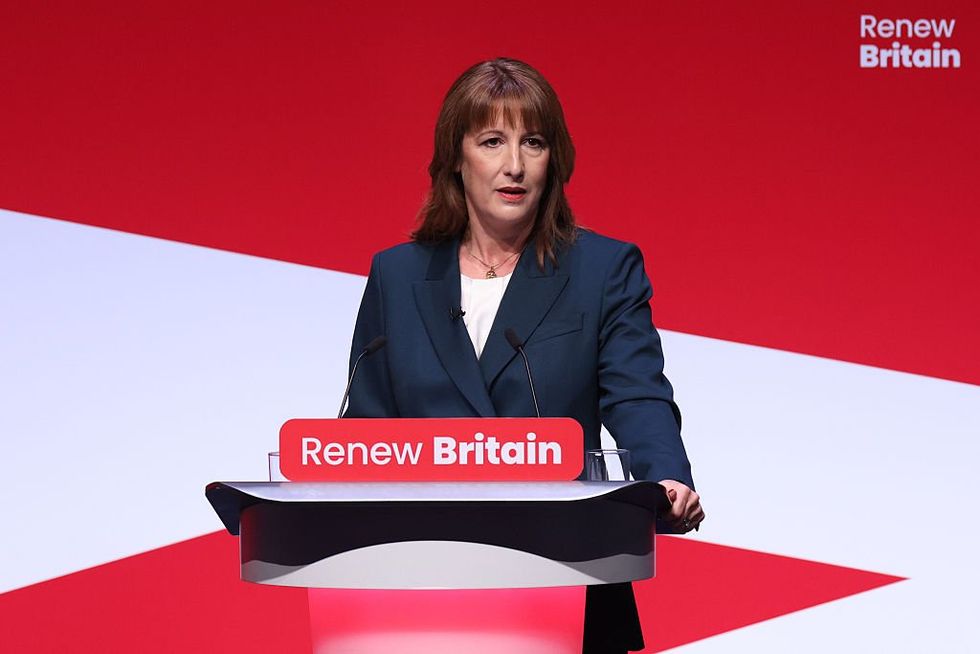
Rachel Reeves is to lift the two-child benefit limit in the budget, officials say
|GETTY
The Prime Minister recently hinted at further measures during his party conference speech, describing extended free school meals for universal credit recipients as "the first step on our journey to end child poverty".
He added: "We have walked that road before, and we will walk that road again, because a Britain where no child is hungry, when no child is held back by poverty, that's a Britain built for all."
The Chancellor has acknowledged her commitment to addressing the issue, telling the Times: "I'm a Labour chancellor and I want to reduce child poverty. I don't want to see children growing up in poverty in Britain. Of course I don't."
The Resolution Foundation estimates that completely removing the cap would require £3.5billion annually. Former Prime Minister Gordon Brown, who has described the policy as "cruel", proposed funding its removal through increased gambling industry taxation, though Treasury sources indicate such revenues are already factored into calculations for addressing a £30bn fiscal gap.
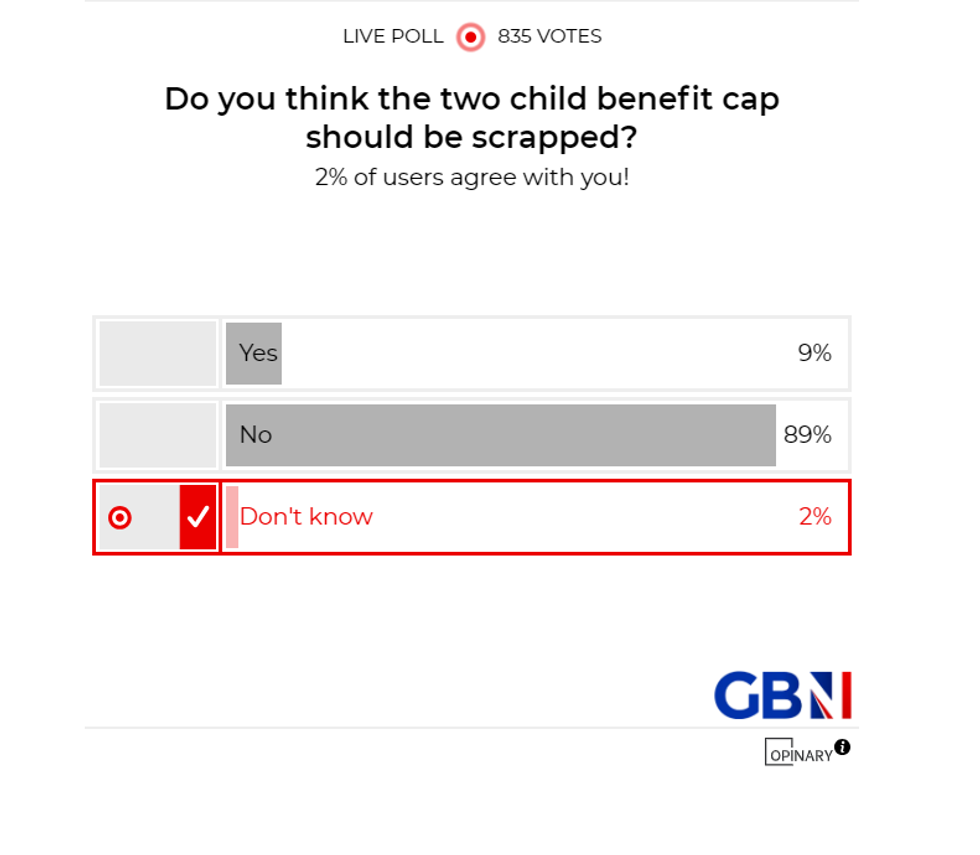
Many GBNEWS viewers believe the cap should be scrapped
| GB NewsChild poverty advocates are pressing for complete removal of the restrictions. Dan Paskins from Save the Children stated: "We agree with the prime minister that action they have taken so far on child poverty is the 'first step'. The only logical next move is to scrap the two-child limit to benefits in full at the autumn budget."
Any partial measures risk criticism from campaigners concerned about impacts on specific communities. The government faces pressure following recent policy reversals on winter fuel allowances and universal credit elements after backbench rebellions.

Removing the restriction would immediately lift 350,000 children from poverty and 700,000 from deep poverty
| GETTYDame Meg Hillier, who chairs the Treasury select committee, has argued that ending the cap represents both a moral imperative and sound economic policy. Speaking at a Labour conference fringe event, she emphasised that removing the restriction would immediately lift 350,000 children from poverty and 700,000 from deep poverty.
The senior MP highlighted demographic concerns, noting Britain's declining birth rates and reduced European migration.
She stated: "Investment now for the long term. Investing in our young people is investing in them and our country for the rest of their lives and it's right that we tackle this and we do it soon."
Economist Tim Leunig, previously an adviser to Conservative chancellors, challenged the government's commitment, saying: "This government needs to decide what it's point is." He criticised delays in publishing the child poverty strategy, claiming: "Our work is done and dusted."
More From GB News





